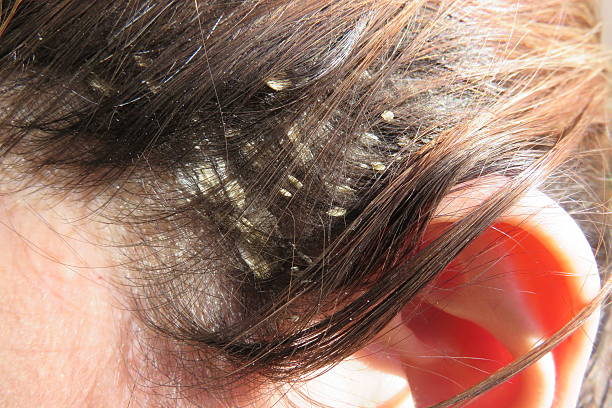Definition of Dandruff: Dandruff is a common scalp condition characterized by the shedding of dead skin cells from the scalp. These skin cells, which are often white or yellowish and flaky, can be visible on the hair and shoulders. While dandruff is not usually a serious medical condition, it can be embarrassing and may lead to itching and discomfort.
Causes of Dandruff: The exact cause of dandruff is not fully understood, but several factors may contribute to its development:
- Malassezia Fungus: This yeast-like fungus is naturally present on the scalp and becomes problematic when it grows excessively, leading to irritation and increased skin cell turnover.
- Seborrheic Dermatitis: An inflammatory skin condition that affects areas with high oil (sebum) production, such as the scalp. It can result in red, itchy, and scaly skin, leading to dandruff.
- Dry Skin: If the scalp is excessively dry, it may lead to flaking and the appearance of dandruff. This can be exacerbated by factors such as cold weather, low humidity, or frequent use of harsh hair products.
- Not Shampooing Enough: Infrequent shampooing can lead to the accumulation of oil and dead skin cells on the scalp, contributing to dandruff.
- Sensitivity to Hair Products: Some individuals may be sensitive to certain ingredients in hair care products, leading to an irritated scalp and dandruff.
- Hormonal Changes: Hormonal fluctuations, such as those occurring during puberty or pregnancy, can affect the skin and contribute to dandruff.
- Certain Medical Conditions: Conditions like psoriasis, eczema, or other chronic illnesses may contribute to dandruff symptoms.
- Diet: Poor nutrition, including a lack of certain vitamins and minerals, can impact overall skin health, potentially contributing to dandruff.
It’s important to note that dandruff is a common and manageable condition. While it may be chronic, it can often be controlled with proper hair care and, in some cases, medical treatments.
Getting rid of dandruff involves adopting a consistent and targeted approach to address the underlying causes. Here are some effective ways to manage and reduce dandruff:
**1. Use Anti-Dandruff Shampoo:
- Choose a medicated anti-dandruff shampoo containing active ingredients like pyrithione zinc, salicylic acid, ketoconazole, or selenium sulfide. Use it regularly, following the instructions on the label.
**2. Scalp Massage:
- Gently massage your scalp while shampooing to help loosen flakes and improve blood circulation. Use your fingertips, not your nails, to avoid causing irritation.
**3. Tea Tree Oil:
- Tea tree oil has natural antifungal properties that can help combat dandruff. Add a few drops to your regular shampoo or dilute it with a carrier oil like coconut oil before applying to the scalp.
**4. Apple Cider Vinegar Rinse:
- Mix equal parts water and apple cider vinegar and use it as a post-shampoo rinse. This can help restore the scalp’s pH balance and reduce dandruff.
**5. Adjust Diet:
- Include foods rich in omega-3 fatty acids (found in fish, flaxseeds, and walnuts) and zinc (found in nuts, seeds, and legumes) to promote a healthy scalp.
**6. Limit Stress:
- Stress can contribute to dandruff. Practice stress-reducing techniques such as yoga, meditation, or deep breathing exercises.
**7. Avoid Hot Water:
- Hot water can strip the scalp of natural oils, leading to dryness. Use lukewarm water when washing your hair.
**8. Limit Styling Products:
- Some hair styling products can contribute to dandruff. Reduce their use and opt for products labeled as non-comedogenic.
**9. Maintain Good Hygiene:
- Wash your hair regularly to prevent the accumulation of oil and dead skin cells on the scalp.
**10. See a Dermatologist:
- If dandruff persists or is severe, consult a dermatologist. They can provide more targeted treatments or prescription-strength shampoos.
Consistency is key when addressing dandruff. It may take some time to see improvement, so be patient and continue with your chosen remedies. If symptoms persist or worsen, seek professional advice for a more personalized approach.

